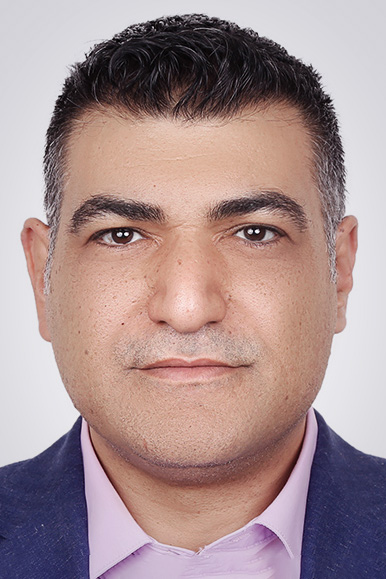

As policymakers search for an IAEA for AI, lessons from ICANN and internet governance loom large, raising questions about multistakeholder legitimacy, mission creep, technical fragmentation and whether AI demands sector-specific regulation rather than grand global architectures. more
 Meltnet envisions a federated internet model led by BRICS nations, combining digital sovereignty with cross-border interoperability. It challenges US-centric governance by proposing a trust-based architecture rooted in shared standards and mutual recognition. more
Meltnet envisions a federated internet model led by BRICS nations, combining digital sovereignty with cross-border interoperability. It challenges US-centric governance by proposing a trust-based architecture rooted in shared standards and mutual recognition. more
 Under ICANN's ICP-2 framework, RIR emergency operations extend beyond technical redundancy to encompass legal relocation, policy divergence and geopolitical risk, exposing tensions between operational resilience and national sovereignty in safeguarding global internet governance. more
Under ICANN's ICP-2 framework, RIR emergency operations extend beyond technical redundancy to encompass legal relocation, policy divergence and geopolitical risk, exposing tensions between operational resilience and national sovereignty in safeguarding global internet governance. more
 A 2026 outlook charts Internet governance between fear and hope, tracking cyber conflict, digital trade and taxation, shrinking rights, and global AI rivalry, while asking whether multistakeholder cooperation can still steer the network toward stability. more
A 2026 outlook charts Internet governance between fear and hope, tracking cyber conflict, digital trade and taxation, shrinking rights, and global AI rivalry, while asking whether multistakeholder cooperation can still steer the network toward stability. more
 Internet governance is shifting from participatory forums to security-driven mandates. As authority accelerates ahead of legitimacy, technical systems face growing instability and operators absorb the risks of politically motivated control. more
Internet governance is shifting from participatory forums to security-driven mandates. As authority accelerates ahead of legitimacy, technical systems face growing instability and operators absorb the risks of politically motivated control. more
 As ICANN prepares to expand the domain name space, calls grow for a public-law framework to govern the DNS root, ensuring global equity, transparency, and accountability in managing the Internet's core infrastructure. more
As ICANN prepares to expand the domain name space, calls grow for a public-law framework to govern the DNS root, ensuring global equity, transparency, and accountability in managing the Internet's core infrastructure. more
 2025 is not a banner year for the status quo. A fashion for deregulation, ignoring processes and questioning whatever was long-established is finding enough adherents that even things which work well are being upended. That's why those looking for leverage to use in hurried dealmaking, or countries with plans to rebalance where digital power lies, may find a handy tool in ICANN. more
2025 is not a banner year for the status quo. A fashion for deregulation, ignoring processes and questioning whatever was long-established is finding enough adherents that even things which work well are being upended. That's why those looking for leverage to use in hurried dealmaking, or countries with plans to rebalance where digital power lies, may find a handy tool in ICANN. more
 Today, I share a warning about serious changes to the Community Priority Evaluation (CPE) of the New gTLD Applicant Guidebook. They are not driven by public comment, but by a few voices within the SubPro Implementation Review Team - and they are very likely to lead to disastrous misappropriation of well-known community names, including those of Tribes, Indigenous Peoples and NGOs around the world. more
Today, I share a warning about serious changes to the Community Priority Evaluation (CPE) of the New gTLD Applicant Guidebook. They are not driven by public comment, but by a few voices within the SubPro Implementation Review Team - and they are very likely to lead to disastrous misappropriation of well-known community names, including those of Tribes, Indigenous Peoples and NGOs around the world. more
 The ICANN Board's recent resolution to suspend an accountability safeguard hardcoded in its bylaws may represent the final straw that breaks the community's trust in ICANN. Most community members, including its own Board Chair, acknowledge that its current policy development and implementation processes are not working efficiently. However, the Board's decision to suspend the mechanism that could address these inefficiencies only seeks to preserve the status quo and the economic interests of these dominant market participants. more
The ICANN Board's recent resolution to suspend an accountability safeguard hardcoded in its bylaws may represent the final straw that breaks the community's trust in ICANN. Most community members, including its own Board Chair, acknowledge that its current policy development and implementation processes are not working efficiently. However, the Board's decision to suspend the mechanism that could address these inefficiencies only seeks to preserve the status quo and the economic interests of these dominant market participants. more
 The future of the World Summit on the Information Society (WSIS) process will be one of the main topics of the 2025 Internet Governance Forum. Many in the IG community are heavily invested in the renewal of WSIS. They imply that if it is not renewed, there will be major, negative effects on the way we govern the Internet. IGP believes that it is healthy and productive for the community to consider the possibility of ending WSIS. more
The future of the World Summit on the Information Society (WSIS) process will be one of the main topics of the 2025 Internet Governance Forum. Many in the IG community are heavily invested in the renewal of WSIS. They imply that if it is not renewed, there will be major, negative effects on the way we govern the Internet. IGP believes that it is healthy and productive for the community to consider the possibility of ending WSIS. more
 "GOD, at least in the West, is often represented as a man with a flowing beard and sandals. Users of the Internet might be forgiven for feeling that nature is imitating art — for if the Net does have a god he is probably Jon Postel" (The Economist, Feb. 1997) David W. Maher, Senior Vice President, Law and Policy of Public Interest Registry (PIR) offers his reminiscence of the early days of the Internet and attempts made to restructure the Domain Name System — an article he has entitled 'Reporting to God'. more
"GOD, at least in the West, is often represented as a man with a flowing beard and sandals. Users of the Internet might be forgiven for feeling that nature is imitating art — for if the Net does have a god he is probably Jon Postel" (The Economist, Feb. 1997) David W. Maher, Senior Vice President, Law and Policy of Public Interest Registry (PIR) offers his reminiscence of the early days of the Internet and attempts made to restructure the Domain Name System — an article he has entitled 'Reporting to God'. more
 There's a well-documented crisis facing the domain name system: very few who rely on domain name registration data from the Whois database to perform vital functions can do so any longer, which is escalating consumer harm and abuse on the internet worldwide. And the problems, thanks to ICANN's overly restrictive policy post-GDPR and a failing policy process, are piling up. more
There's a well-documented crisis facing the domain name system: very few who rely on domain name registration data from the Whois database to perform vital functions can do so any longer, which is escalating consumer harm and abuse on the internet worldwide. And the problems, thanks to ICANN's overly restrictive policy post-GDPR and a failing policy process, are piling up. more
 In the digital age, personal data protection has become paramount, with regulations like the General Data Protection Regulation (GDPR) shaping global practices. One area significantly affected is the public availability of WHOIS data, a critical resource in the domain name system. WHOIS traditionally provided detailed contact information for domain registrants, but privacy measures have redacted much of this data in recent years. more
In the digital age, personal data protection has become paramount, with regulations like the General Data Protection Regulation (GDPR) shaping global practices. One area significantly affected is the public availability of WHOIS data, a critical resource in the domain name system. WHOIS traditionally provided detailed contact information for domain registrants, but privacy measures have redacted much of this data in recent years. more
 Twenty years after multistakeholderism helped save the Free Internet and present-day Internet governance from a potentially existential crises, the term is again triggering some strong emotions. There are very real questions around definitions, accountability, participation, and even legitimacy in all multistakeholder models. Within Internet governance, there are declared enemies of the multistakeholder approach... more
Twenty years after multistakeholderism helped save the Free Internet and present-day Internet governance from a potentially existential crises, the term is again triggering some strong emotions. There are very real questions around definitions, accountability, participation, and even legitimacy in all multistakeholder models. Within Internet governance, there are declared enemies of the multistakeholder approach... more
 Abusive behavior that leverages the domain name system (DNS) continues to be a problem, with a reach that has been widely and credibly documented. There is little doubt that bad actors continue to use the DNS for nefarious and costly purposes. While the amendments made in 2024 to ICANN's Registry Agreement (RA) and Registrar Accreditation Agreement (RAA) were a step in the right direction, more advanced tools are needed to bring abuse rates down. more
Abusive behavior that leverages the domain name system (DNS) continues to be a problem, with a reach that has been widely and credibly documented. There is little doubt that bad actors continue to use the DNS for nefarious and costly purposes. While the amendments made in 2024 to ICANN's Registry Agreement (RA) and Registrar Accreditation Agreement (RAA) were a step in the right direction, more advanced tools are needed to bring abuse rates down. more